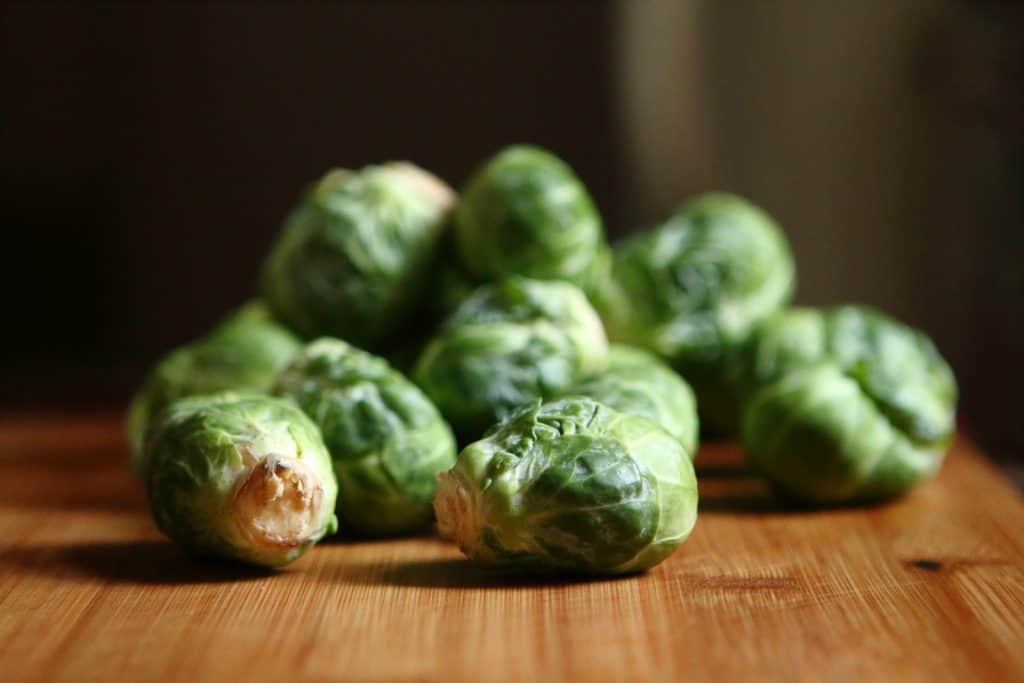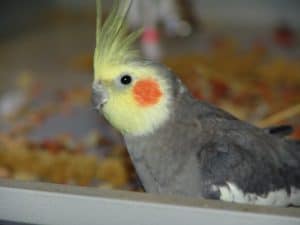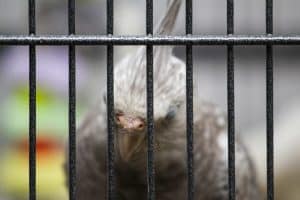When it comes to our feathered friends, such as cockatiels, providing them with a balanced and nutritious diet is paramount for their health and well-being. One common query among cockatiel owners is, “Can cockatiels eat brussel sprouts?” In this comprehensive guide, we will explore the ins and outs of feeding your cockatiel, with a specific focus on Brussels sprouts and their role in a healthy diet for your avian companion.
Understanding Cockatiel Diets
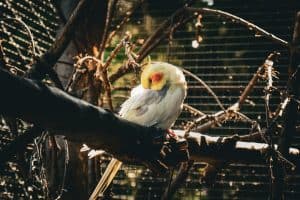
Before delving into the specifics of feeding Brussels sprouts to your cockatiel, it’s crucial to understand the dietary needs of these charming birds. Cockatiels are known for their varied diet in the wild, which includes seeds, fruits, vegetables, and even some insects. As responsible cockatiel owners, we must replicate this diversity in captivity to ensure their optimal health.
Brussels Sprouts: Nutritional Overview
Brussels sprouts are a cruciferous vegetable known for their impressive nutritional profile. They are rich in vitamins, minerals, and dietary fiber. Let’s take a closer look at the key nutrients found in Brussels sprouts:
- Vitamin C: Brussels sprouts are a great source of vitamin C, which plays a crucial role in maintaining a bird’s overall health.
- Vitamin K: This vitamin is essential for blood clotting and bone health, and Brussels sprouts provide a healthy dose of it.
- Vitamin B: Brussels sprouts contain various B vitamins that contribute to energy production and overall vitality.
- Fiber: The fiber in Brussels sprouts aids in digestion, ensuring that your cockatiel’s food is properly processed.
Can Cockatiels Eat Brussel Sprouts?
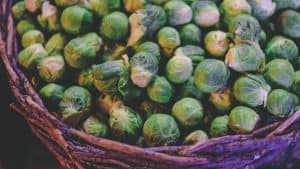
Now, let’s address the main question: Can cockatiels eat Brussels sprouts? The answer is yes, but with some important considerations:
- Moderation is Key: While Brussels sprouts offer several nutritional benefits, they should be fed in moderation. Introducing them gradually into your cockatiel’s diet is essential.
- Proper Preparation: Before serving Brussels sprouts to your feathered friend, make sure to cook them thoroughly. Birds have a harder time digesting raw vegetables, so it’s best to offer them cooked Brussels sprouts.
- Portion Control: Keep an eye on portion sizes. A small serving of cooked Brussels sprouts is sufficient, as overindulgence can lead to digestive issues.
- Variety Matters: Remember that a balanced diet for cockatiels includes a variety of fresh vegetables, fruits, and other foods. Brussels sprouts should be just one component of their daily intake.
- PREMIUM FORAGING MIX of bell peppers, papayas, pineapples, flax seed and almonds
- HAND-PICKED INGREDIENTS inspired by ancestral feeding habits of Cockatiels
- NATURAL with vitamins and minerals
- NO ADDED FILLERS or artificial preservatives
- PREBIOTICS and PROBIOTICS for digestive health
- OMEGA 3s to support brain and heart health
- VETERINARIAN-RECOMMENDED BRAND with more than 150 years of experience caring for pet birds
Preparing Brussels Sprouts for Cockatiels
To make Brussels sprouts safe and enjoyable for your cockatiel, follow these preparation guidelines:
- Cook Thoroughly: Steam or boil Brussels sprouts until they are soft. Avoid seasoning or adding any harmful additives.
- Chop into Small Pieces: Birds have small beaks, so cut the Brussels sprouts into manageable, bite-sized pieces.
- Cool Before Serving: Ensure that the cooked Brussels sprouts are at room temperature before offering them to your cockatiel.
Other Safe Vegetable Options
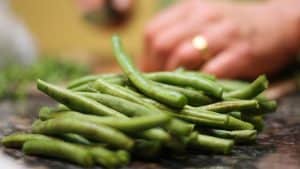
While Brussels sprouts can be a nutritious addition to your cockatiel’s diet, it’s essential to provide variety. Here are some other safe vegetables to consider:
- Sweet potatoes
- Green beans
- Bok choy
- Mustard greens
- Leafy greens like spinach
- Bell peppers
Incorporating these vegetables into your cockatiel’s diet will help ensure they receive a well-rounded array of nutrients.
Signs of a Happy and Healthy Cockatiel
After introducing Brussels sprouts and other fresh foods into your cockatiel’s diet, it’s crucial to monitor their health. Here are some signs of a happy and healthy cockatiel:
- Vibrant feathers and skin
- Energetic behavior and playfulness
- Regular, solid droppings
- Bright, alert eyes
- A good appetite
If you notice any changes in your bird’s behavior or health issues, such as diarrhea or lethargy, consult with an avian vet promptly.
What to Avoid Feeding Your Cockatiel
While Brussels sprouts and many other vegetables can be part of a healthy cockatiel diet, there are some foods to steer clear of:
- Raw potato, which can be toxic to birds
- Uncooked corn, as it’s difficult for birds to digest
- Iceberg lettuce and romaine lettuce, which offer limited nutritional value and can pose a risk of bacterial contamination
Expanding Your Cockatiel’s Diet
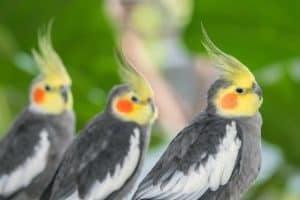
Feed Your Cockatiel a Balanced Diet
Feeding your cockatiel a well-rounded diet is crucial for their overall health and longevity. While Brussels sprouts are a nutritious addition, it’s important to consider other food options to ensure their dietary needs are met.
Include Cooked Brown Rice: Brown rice can be a beneficial addition to your cockatiel’s diet. It provides essential carbohydrates and dietary fiber, promoting digestive health. When introducing cooked brown rice, ensure it’s fully cooked and cooled before serving.
Beware of Canned Vegetables: While fresh vegetables are generally a healthy choice, canned vegetables may contain added preservatives or high levels of sodium, which can be harmful to your bird. Stick to fresh or frozen vegetables for the best nutrition.
The Importance of Fresh Food in Your Cockatiel’s Diet
Fresh food plays a pivotal role in your cockatiel’s nutrition. It provides essential vitamins and minerals that contribute to their well-being. In addition to Brussels sprouts, consider incorporating the following fresh foods into their diet:
- Leafy Greens: Offer a variety of leafy greens like spinach, kale, and Swiss chard. These greens are rich in vitamins and antioxidants that can bolster your cockatiel’s health.
- Fresh Fruits: Cockatiels can enjoy fruits like apples, berries, and pears in moderation. These fruits provide essential nutrients and are a tasty treat for your feathered friend.
- Sprouts: Sprouted seeds are an excellent source of live enzymes, making them a valuable addition to your cockatiel’s diet. You can easily grow sprouts at home for added freshness.
Identifying Toxic Foods and Ensuring Proper Calcium Absorption
As responsible cockatiel owners, it’s vital to be aware of toxic foods and the factors affecting calcium absorption in your bird’s diet.
Avoid Toxic Foods: Some foods can be toxic to cockatiels and should never be offered. These include chocolate, caffeine, alcohol, and avocado. Always double-check if a food is safe before introducing it to your pet.
Calcium Absorption: Proper calcium absorption is crucial for your cockatiel’s bone health. To aid calcium absorption, ensure your bird receives adequate vitamin D. Exposure to natural sunlight or providing a UVB light source in their enclosure can help.
Balancing Your Bird’s Diet for Optimal Health
A balanced bird’s diet is the key to a happy and healthy cockatiel. In addition to the specific foods mentioned above, consider the following tips to maintain their well-being:
- Gradual Introductions: When introducing new foods to your cockatiel, do so gradually. This allows their digestive system to adapt to changes in their diet.
- Hydration: Ensure your bird has access to clean, fresh water at all times. Proper hydration is essential for their overall health.
- Consult an Avian Vet: If you’re uncertain about your cockatiel’s diet or encounter any health issues, consult with an avian veterinarian. They can provide expert guidance tailored to your bird’s unique needs.
Final Thoughts: Can Cockatiels Eat Brussel Sprouts?
In conclusion, can cockatiels eat Brussels sprouts? Yes, they can, as long as you follow proper preparation and portion control guidelines. Offering a variety of fresh vegetables and fruits alongside other components in your cockatiel’s daily diet is essential for their overall health and well-being.
Remember that the key to a happy and healthy feathered friend is a balanced diet that mimics their natural dietary habits. By providing your cockatiel with a diverse range of foods, including Brussels sprouts in moderation, you’ll help them stay healthy and thrive for years to come. So go ahead and introduce some nutritious Brussels sprouts to your cockatiel’s menu—they might just become a favorite treat!
